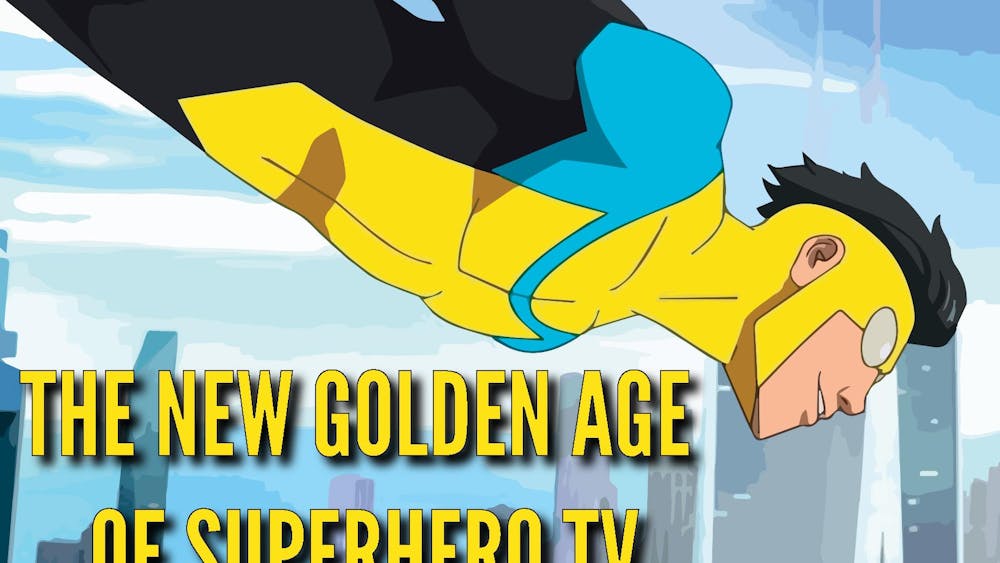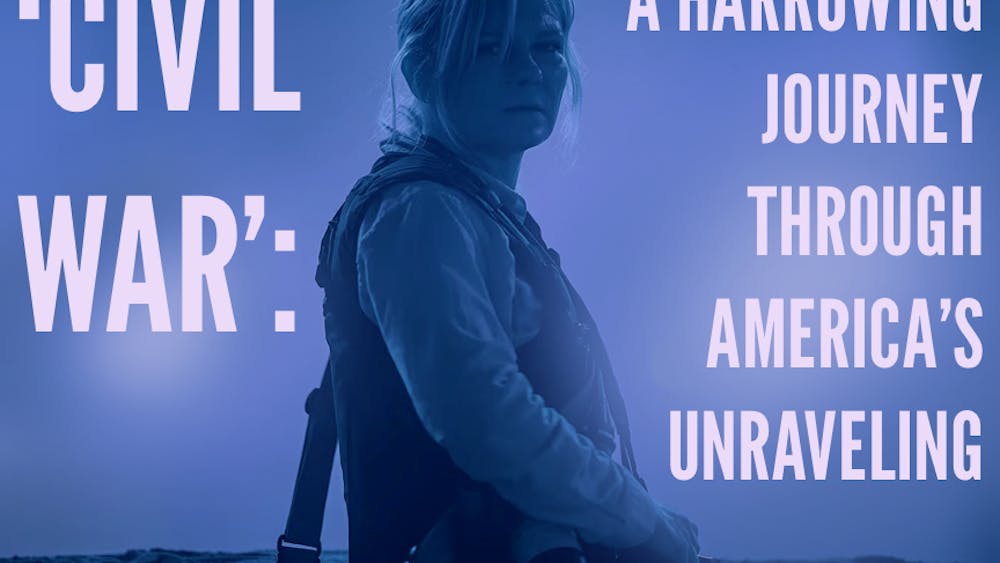
Bjork’s highly-anticipated “Utopia” follows the Icelandic singer’s heartbreaking 2015 record “Vulnicura,” which documents the emotional fallout of her divorce from multimedia artist Matthew Barney. In stark contrast with the darker themes of her previous record — supplemented with apocalyptic production by Arca and the Haxan Cloak, ringing over an entourage of funerary strings — “Utopia” captures Bjork’s emotional resurrection, shifting location from cavernous aural landscapes to a bright personal Eden, expressed in the language of copious flutes and sampled bird calls. The radically expressive lyricism of “Vulnicura” makes a return, but undergoes an emotional transmutation she succinctly captures on lead single “The Gate,” confessing: “My healed chest wound / Transformed into a gate / Where I receive love from / Where I give love from.”
Excessive discussion of Bjork’s past work might seem irrelevant, but it’s impossible to fully understand “Utopia” — and its function in Bjork’s discography — outside the context of her previous records. For one, the elation she captures with return collaborator Arca naturally follows the same pain that inspired “Vulnicura.” In fact, periods of euphoria are known to commonly follow long bouts of depression. This euphoria, which centers around Bjork’s renewed capacity to love, bursts most aggressively on “Arisen My Senses,” the record’s opening — and perhaps best — track. The singer herself calls the multilayered melody “a constellation in the sky ... it’s like five melodies.” Above it, a series of fleeting lyrics floats above her body, swirling in a hurricane of gossamer: “Just that kiss / Was all there is / Every cell in my body / Lined up for you.”
Much of what’s new on “Utopia,” though, isn’t altogether new. Bjork endlessly celebrates her fruitful artistic relationship with Arca, but the producer’s work is naturally visceral and dark — not a particularly great match for Bjork’s newly bright and weightless approach to the record’s arrangements, especially since Arca’s production on “Utopia” isn’t radically different from his work on “Vulnicura.” The result is perfectly viable, but clouds the record’s professed themes.
Even the natural fixations of “Utopia” are familiar; they follow Bjork’s fascinations with the universe and biology on “Biophilia” (2011), though on “Utopia” they find her sampling exotic birdsongs from Iceland, Venezuela and other regions of the world. The flute arrangements complement these sounds, and swell to stunning heights on tracks like “Saint.” The album art, too, stresses the flute’s symbiosis with natural “voices,” featuring two holes on Bjork’s neck above the holes of her flute. But though the organic aesthetic felt is insufficiently executed on “Biophilia’s” production, many elements on “Utopia” feel simply gratuitous — directionless, indeed, as though the record itself were drifting in the wind.
This makes it cohesive, to be sure. That’s probably why “Utopia” has been compared with “Vespertine” (2001), a heavily electronic record whose sonic palette was consistently imbued with frosty features. But whereas “Vespertine” was stuffed with memorable melodies that set each track apart, “Utopia” wanders into trappings that recall “Biophilia” but have roots as far back as “Medulla” (2004): On the eponymous track “Utopia,” the lush soundscape doesn’t justify the flute’s semi-random chirping, nor that Bjork’s vocal melody seems as though largely improvised. Sure, it’s agreeable in the moment, but by the track’s end it’s unclear what has been accomplished. And on “Courtship,” we are subjected to another lap of the same digressions.
Of course, Bjork doesn’t need to make another pop album. “Vulnicura” is easily her most challenging record and also among her best, but its themes of heartbreak were rigorously developed and sonically distinguished. “Utopia,” however, largely dawdles in birdsong and flute symphonies that, though gorgeous at times and relevant in theory, aren’t sufficiently developed. As a result, her lush follow-up record of post-heartbreak euphoria remains more compelling on paper than in practice.
Artist: Bjork
Album: “Utopia”
Label: One Little Indian
Favorite Track(s): “Arisen My Senses”
If you like: Arca, bird calls, satyrs
Shamrocks: 3 out of 5













